Overdraft fees can be real killers. To add insult to injury, you’re charged a considerable amount of money as a penalty. You likely already have some financial challenges to get into that situation in the first place.
Banks are growing more reliant on these fees. These fees account for over $32 billion in bank income each year.
Banks have software that maximizes your overdraft charges. Imagine having $100 in the bank and two outstanding checks for $200 and $50. If both are payable around the same time, the software will ensure that the $200 check gets paid first. That way, you’re overdrawn twice.
While many banks offer overdraft protection, this is rarely the answer. Those that overdraft frequently would save money by paying the overdraft fees rather than opting for overdraft protection.
Try these strategies to eliminate or reduce your overdraft charges:
- Use a credit card instead of a debit card or check. This method is not without risk. It requires you to keep track of your spending and be disciplined to avoid overspending. This method can be dangerous if you’re unwilling or unable to control your spending.
- With this method, you only need to write one check each month. That makes it challenging to be overdrawn.
- You can enter your credit card purchases into your checkbook as if you had written a check. This will help to control your spending.
- Keep some extra money in your checking account. This is similar to stashing an additional $20 in your car for emergencies. Many people avoid overdraft problems by keeping extra money in their checking accounts. This can also help to stay above the minimum balance required to avoid unnecessary fees.
- Use online banking systems to stay on top of your balance. Most banks today offer many alerts to keep you updated with your account balance information. You can check your pending payments at the end of each day and make the necessary corrections.
- Many accounts will allow you to set up low-balance alerts.
- It’s challenging to be overdrawn if you never use a check or debit card. You can only be stretched by withdrawing a little cash. The bank won’t let you have it.
- Use cash for your day-to-day expenses. You can pay your bills with online banking, but a better alternative might be to pay your bills with money orders. Your bank can provide you with a money order, but so can your local post office. These typically aren’t free, but it’s a sure way to avoid being overdrawn on your account again.
Overdraft fees can create a tremendous financial challenge if you’re already struggling. Those with at least one overdraft pay an average of over $250 in overdraft fees each year. You can find something better to do with that money than give it to your bank!
Responsible banking is simple, yet many people need help managing it responsibly and effectively. Always know how much is in your account and track your spending. You may need to review your balance and spending daily. Develop a plan that works for you. Follow one of these strategies or come up with your own.

